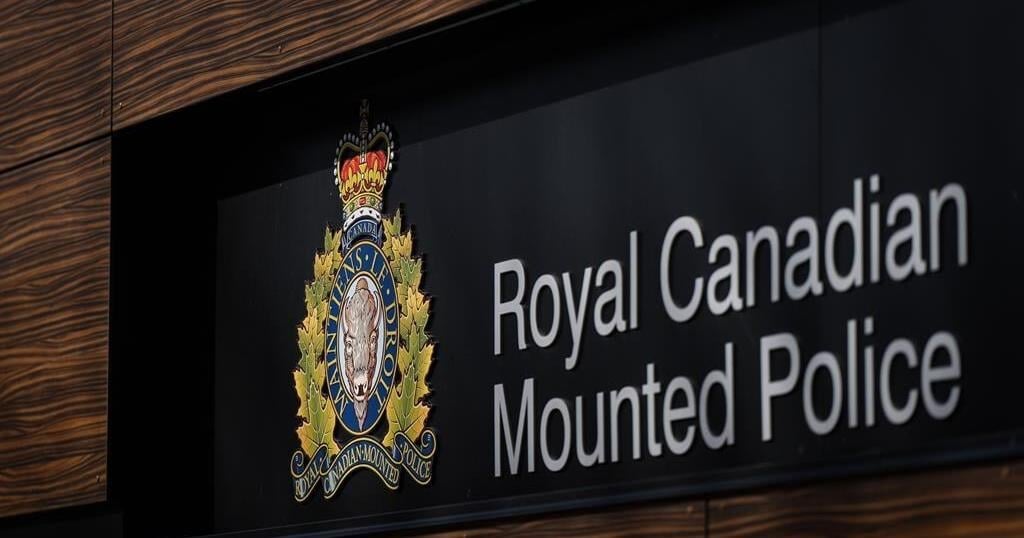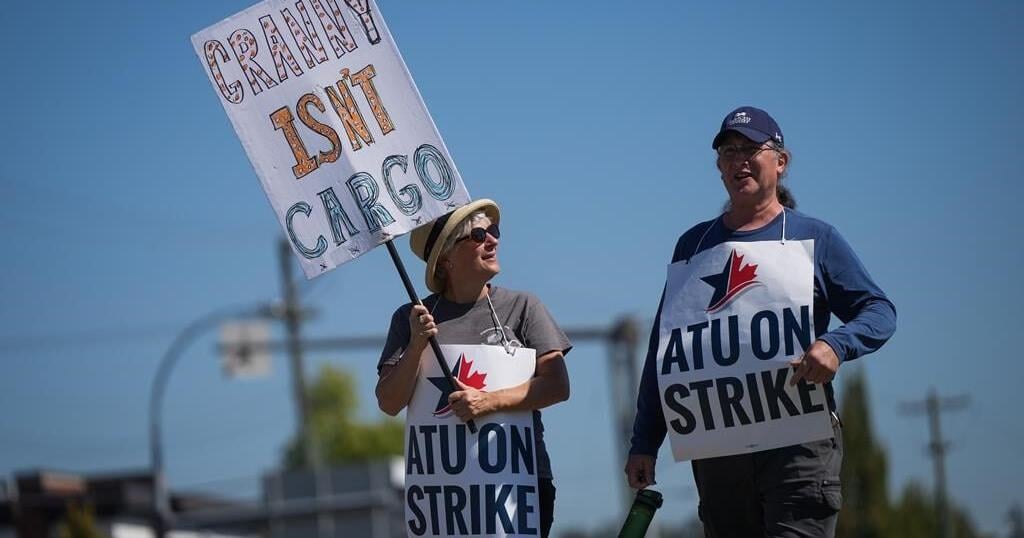OTTAWA –
Pierre Poilievre is the new leader of the Conservative Party of Canada, securing victory on the first ballot after a record-setting and divisive leadership campaign.
After a seven-month campaign, the long-time MP and former cabinet minister from Ontario won the election decisively, securing 22,993 of the just under 33,800 electoral points up for grabs. Poilievre secured support across the country, coming in as members’ first choice in almost every riding.
“Tonight begins the journey to replace an old government that costs you more and delivers you less, with a new government that puts you first, your paycheck, your retirement, your home, your country,” Poilievre said in his first speech as leader on Saturday evening from the Ottawa convention centre floor where the leadership announcement was held on Saturday night.
Receiving 68.15 per cent of the vote, Poilievre far outpaced his progressive Conservative rival and runner up Jean Charest’s 16.07 per cent of the vote.
Social conservative and MP Leslyn Lewis placed third, with 9.69 per cent of the vote. Former Ontario MPP Roman Baber placed fourth, with 5.03 per cent of the vote, and mayor-turned-MP Scott Aitchison finished last with 1.06 per cent of the vote.
The unveiling of results of the mail-in ballot election was done in a more pared-down way than initially planned, on account for the country being in an official mourning period given the death of Queen Elizabeth II. A moment of silence and tribute was held before Poilievre was named the winner.
While the party aimed to hold a subdued event, pulling the plug on confetti cannons, the crowd of approximately 1,000 erupted into cheers and some chants of “freedom,” when the results were announced.
After Poilievre was cheered up onto the stage, he started his remarks with a message of condolence.
“I feel a small catch in my throat when I utter the words that no leader has stated in this country for over seven decades, God Save the King,” he said.
One of the main questions heading into this evening was whether Poilievre was able to take it on the first ballot, a feat last achieved by former prime minister Stephen Harper in 2004.
Ahead of the results, Charest’s camp indicated they still felt they had a path to victory, though touting the Poilievre’s campaign’s statistics, top adviser Jenni Byrne said they were feeling “pretty good.”
The results were calculated in points, with up to 100 points allocated to each of the 338 ridings. Ultimately there were 33,737 points up for grabs after the verification process was complete, making the threshold needed to win 50 per cent plus one: 16,869, a metric Poilievre considerably exceeded.
In an attempt to avoid the considerable delays seen in the party’s 2020 race due to a mechanical issue that resulted in thousands of ballots being damaged upon opening, result tabulations began on Saturday. Still, the results were delayed approximately half an hour from what the party had initially planned.
In his speech—his first opportunity to signal the direction the party is heading and set the tone for his tenure— Poilievre took the opportunity to outline some of his main commitments, and made a point of thanking each one of his opponents’ for their contributions to the party, and the country.
“To supporters of all of these fine candidates I open up my arms to you. Now, today, we are one party serving one country,” he said.
Reacting to the results, Charest thanked his supporters and said he was proud of the campaign they ran, but signalled that Poilievre should be granted a “clean slate” opportunity to unite the party.
“We still have a critical role to play in shaping our forward-looking policy agenda and attracting new voters to the Conservative Party. I will have more to say tomorrow,” he tweeted.
Despite his efforts to extend an olive branch to the progressives in the party, don’t expect Poilievre to take a more moderate approach post-campaign.
“What you see is what you get,” said Byrne. “What you should expect to hear from Pierre is exactly what he’s talking about. But it’s going to be predominantly on the issues that Canadians care about, and right now the economy is the number one issue.”
Poilievre made the pitch Saturday night for a government that offers Canadians hope.
“There are people in this country who are just hanging on by a thread… They don’t need a government to run their lives, they need a government that can run a passport office,” Poilievre said to cheers. “They need a prime minister who hears them, and offers them hope that they can again afford to buy a home, a car, pay their bills, afford food, have a secure retirement, and god forbid even achieve their dreams if they work hard. They need a prime minister who will restore that hope, and I will be that prime minister.”
POILIEVRE’S PATH TO VICTORY
After opting out of running in the 2020 race citing his family life, Poilievre came into this campaign at full force, framing his race as a run for prime minister, and one that would champion “personal freedom.”
His introductory campaign video promising to “give you back control of your life” has amassed 4.9 million views since it was posted in February.
With a strong team of experienced Conservatives behind him, Poilievre outpaced the other leadership candidates when it came to membership sign-ups and fundraising, raking in millions more dollars, and from a larger donor pool than any of his opponents.
The long-time Ottawa-area MP—he was first elected federally in 2004— has been connected to conservative politics from a young age.
At 43 now, Poilievre has built a reputation on Parliament Hill as a bit of a firebrand, not hesitant to say what he thinks. While he was given the nickname “skippy,” a descriptor that may better fit now is “scrappy” as he’s not one to back away from a policy debate or pull punches when it comes to calling out his opponents.
Poilievre met his wife Anaida working in politics and the pair eloped in Portugal in late 2017, together they have two children, Valentina and Cruz.

Anaida Poilievre, wife of Conservative Party leadership candidate Pierre Poilievre, touches his chin as they listen to speeches at the Conservative Party of Canada leadership vote, in Ottawa, on Saturday, Sept. 10, 2022. THE CANADIAN PRESS/Justin Tang
During the leadership campaign it was not uncommon to see Anaida by his side, and Saturday evening was no different. Introducing her husband as Canada’s next prime minister, she also took the opportunity to introduce herself, sharing some personal family history, in both official languages.
Poilievre and his family currently live in Greely, a suburban-rural neighbourhood 30 minutes from Parliament Hill. Poilievre, who was born to a teenage mother in Calgary, was adopted by schoolteachers from Saskatchewan, went on to graduate from the University of Calgary with a degree in international relations, and a keen interest in conservative activism.
Once Stephen Harper’s Conservative government came to power in 2006, Poilievre held a series of parliamentary secretary and junior minister roles. He then became a key critic of Prime Minister Justin Trudeau’s government, from his seat in the Official Opposition benches.
In this race, Poilievre attracted large crowds across the country, with supporters appearing to resonate with his affordability-focused and unapologetic, populist message of “taking back control” from “gatekeepers.”
According to his campaign, Poilievre held 80 events across the country that 93,000 people RSVP’d to, ultimately signing up more than 300,000 members.
A key messaging tool used by Poilievre—who rarely participated in interviews or answered journalists’ questions throughout the race—were social media videos featuring him speaking directly into the camera in various scenarios. In the videos he’d fixate on one issue, offering his perspective on housing, or the price of food, for example, making a case for why the current government is failing and what he’d do differently.
His platform included promises to get rid of the carbon tax, lift COVID-19 vaccine mandates, and fire the governor of the Bank of Canada. He said he would phase out “inflationary deficits” by culling spending and reversing Liberal policies and programs.
Poilievre has also championed cryptocurrency, and supported the “Freedom Convoy,” a pair of positions that were condemned by some of his opponents as well as members from other parties.
A key moment for Poilievre’s campaign was when Harper endorsed Poilievre. In a video released on Twitter, the former prime minister said Poilievre has made the “strongest case” for being able to bring in new party members and win the next general election. Harper didn’t offer candidate endorsements in the preceding two leadership races that saw Andrew Scheer and Erin O’Toole take on the party’s top job.
While he took part in the first two official party debates, Poilievre came under fire when he decided to skip a third event organized by the party in the aftermath of Patrick Brown’s disqualification.
When Brown was removed from the race, his campaign quickly accused the Conservative Party of acting in Poilievre’s favour. Brown claimed Poilievre’s supporters were behind his ouster, something the party has ardently denied.
AFTER SEVEN DIVISIVE MONTHS, TALK OF UNITY
The campaign began after O’Toole resigned in February following considerable infighting in the aftermath of his unsuccessful 2021 federal election campaign.
Appearing via video message on Saturday, O’Toole said the party has to put Canadian unity first, because pandemic-exacerbated frustrations are eroding trust, and damaging democratic institutions.
“The Conservative Party needs to be compassionate, because Canadians need to be heard and need to be understood more than ever before. And the Conservative Party needs to be strong— not with the strength to overpower our rivals—but with the strength of character needed to carry those in need or those who are losing faith in our country,” he said.
The race—the party’s third in the last six years— was largely seen as a ‘battle for the soul of the party’ and a result, the campaign has had no shortage of attacks as candidates pitched themselves—through rallies and on debate stages—as the best placed person to lead.
The attacks throughout the race were largely exchanged between Charest and Poilievre. Charest suggested that his convoy-supporting opponent was unfit to lead, while Poilievre accused his rival of being a Liberal in blue clothing.
As the race rolled to a close, prominent Conservatives have emphasized the need for the membership to come together once the winner is named, and focus on defeating the Liberals rather than post-leadership unity questions.
“This is Canadian political history. No other political party has had this many members and no other political party has had more than 400,000 Canadians vote in a leadership election. What it tells me as president is that the Conservative Party is growing. It tells me that there is a desire among Canadians for a change in government, and that changing government, in many ways starts tonight,” said Conservative Party President Rob Batherson on Saturday night.
Ahead of the results, Charest campaign co-chair Tasha Kheiriddin said that the most important thing regardless of who won, “the most important thing” is whoever the party elects, has to take the party forward in a united way.
“The biggest challenge is to make people feel welcome and to make them understand that they have a place at the table… It’s going to be a case of also I think, letting go of some of the things that people are turned off by,” she said.
“I’m watching for a sign that we’re going to look for what unites us and what is in common as opposed to some of the things that have divided. Whoever becomes leader that’s what they have to build on because otherwise we will never beat Justin Trudeau,” said Kheiriddin.
On this, Byrne and Kheiriddin agree. Byrne said she’s confident members—new and old—will unite behind the new leader, and dismissed suggestions this campaign was any more divisive than previous races.
“The modern Conservative party is a party of coalition. It’s a party of social conservatives, fiscal conservatives, democratic reformers. And that coalition has changed,” she said.
Poilievre will be talking the helm of His Majesty’s Loyal Opposition 10 days before the fall sitting of Parliament will begin.
In an early indication of the fight ahead, long-time Liberal MP and cabinet minister Dominic LeBlanc— attending Saturday’s event, he said, to congratulate the winner—questioned Poilievre’s sincerity.
“What we’ve seen in his leadership campaign is a series of reckless and irresponsible ideas that we don’t think will improve the Canadian economy,” LeBlanc said.
“Somebody who’s telling people to buy Bitcoin, somebody who’s calling childcare agreements ‘slush funds,’ doesn’t feel like somebody who’s serious about big issues around affordability, around the economy.”
It’s possible one of Poilievre’s first acts as Opposition leader could be attending Queen Elizabeth II’s funeral as part of the Canadian delegation.
Once the political season does get underway, CTV Political Commentator Tom Mulcair is predicting some eventful question periods.
“This guy is not going to hold back. But at the same time, he knows that he’s got to present a very straight face to Canadian voters… And I think that that’s what Poilievre is going to have to work on,” Mulcair said. “We’ve been told nonstop that the party had big fractures in it. Now Poilievre gets to really play a good strong hand.”
Source link
Related

 Anaida Poilievre, wife of Conservative Party leadership candidate Pierre Poilievre, touches his chin as they listen to speeches at the Conservative Party of Canada leadership vote, in Ottawa, on Saturday, Sept. 10, 2022. THE CANADIAN PRESS/Justin Tang
Anaida Poilievre, wife of Conservative Party leadership candidate Pierre Poilievre, touches his chin as they listen to speeches at the Conservative Party of Canada leadership vote, in Ottawa, on Saturday, Sept. 10, 2022. THE CANADIAN PRESS/Justin Tang






















